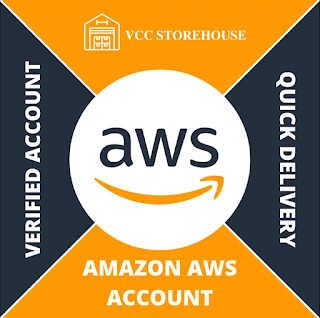I'm beginning a series on AWS in which I will examine AWS all along. This is the main article of the piece of that series.
Whether you are hoping to find out about AWS
for your vocation or your advantage, I accept you will find this article
supportive.
How about we begin?
Amazon Web Services (AWS) is a solid cloud
administration stage, offering figure power, information base capacity, content
conveyance, and other usefulness to help organizations scale and develop.
In straightforward words, AWS permits you to
do the accompanying things-
1. Running web and application servers in the
cloud to have dynamic sites.
2. Securely store every one of your records
on the cloud so you can get to them from any place.
3. Using oversaw data sets like MySQL,
PostgreSQL, Oracle, or SQL Server to store data.
4. Deliver static and dynamic records rapidly
all over the planet utilizing a Content Delivery Network (CDN).
5. Send a mass email to your clients and
substantially more!
Since it has become so undeniably obvious how
you can manage AWS, let's have an outline of different AWS administrations.
Essential Terminologies
1. Region — A district is a geological region
all over the planet where AWS's server farms are found. Every district
comprises (at least 2) accessibility zones.
2. Availability Zone — It is a gathering of
at least one server farm.
3. Edge Location — They are CDN (Content
Delivery Network) endpoints for Cloud Front. Reserved information is put away
here to lessen inertness to the end clients.
4. Local Zone — This allows you to send AWS
administrations, as process and capacity administrations, nearer to your end
clients for low-inertness necessities.
5. Wavelength — It implants AWS register and
capacity administrations inside 5G organizations thus permitting designers to
construct applications that convey single-digit millisecond latencies to cell
phones and end clients.
6. Outposts — It brings AWS administrations
and foundation to essentially any on-premises or edge area assisting you with
building a steady mixture experience.
Register
1. EC2 (Elastic Compute Cloud) — These are
only the virtual machines in the cloud on which you have the OS level control.
You can run anything you desire in them.
2. LightSail — If you have no related
knowledge with AWS this is for you. It consequently conveys and oversees the
process, stockpiling, and systems administration capacities expected to run
your applications.
3. ECS (Elastic Container Service) — It is an
exceptionally versatile compartment administration to permits you to run Docker
holders in the cloud.
4. EKS (Elastic Container Service for
Kubernetes) — This allows you to utilize Kubernetes on AWS without introducing
and dealing with your Kubernetes control plane.
5. Fargate — It is a server less process motor
that permits you to run holders on AWS without overseeing servers.
6. Lambda — AWS's server less innovation that
permits you to run capabilities in the cloud. It's a colossal expense saver as
you pay just when your capabilities execute.
7. Batch — It empowers you to effectively and
proficiently run group processing jobs of any scale on AWS utilizing Amazon EC2
and EC2 spot armada.
8. Elastic Beanstalk — Allows robotized
sending and provisioning of assets like a profoundly versatile creation site.
It gives you substantially more command over your infra when contrasted with
App sprinter.
9. App Runner — It is a completely overseen
administration that makes it simple for you to convey containerized web
applications and APIs at scale rapidly. In the engine, it fabricates an ECS
bunch and uses Fargate to execute the compartments.
10. AWS Auto Scaling — This allows you to
naturally scale your figure assets all over given Cloud Watch measurements.
Capacity
1. S3 (Simple Storage Service) — Storage
administration of AWS in which we can store objects like records, organizers,
pictures, reports, tunes, and so forth. Introducing programming, games, or
Operating systems can't be utilized.
2. EFS (Elastic File System) — Provides document
capacity for use with your EC2 occasions. It utilizes the NFSv4 convention and
can be utilized simultaneously on a huge number of occasions.
3. Glacier — It is an incredibly minimal
expense recorded help to store documents for quite a while like a couple of
years or even many years.
4. Storage Gateway — It is a virtual machine
that you introduce on your on-premise servers. Your on-premise information can
be reared up to AWS giving greater solidness.
5. DRS (Elastic Disaster Recovery) — It
repeats your on-premises or cloud-based applications to limit personal time and
information misfortune in the event of a debacle.
6. AWS Backup — A completely overseen
administration that makes it simple to unify and computerize information
security across AWS administrations, in the cloud, or on-premises.
7. EBS (Elastic Block Storage) — It is a
versatile, superior presentation block capacity administration for EC2 cases.
In straightforward words, it is the HDDs or SSDs joined to your EC2 occasions.
One EBS volume must be connected to a solitary EC2 example.


No comments:
Post a Comment